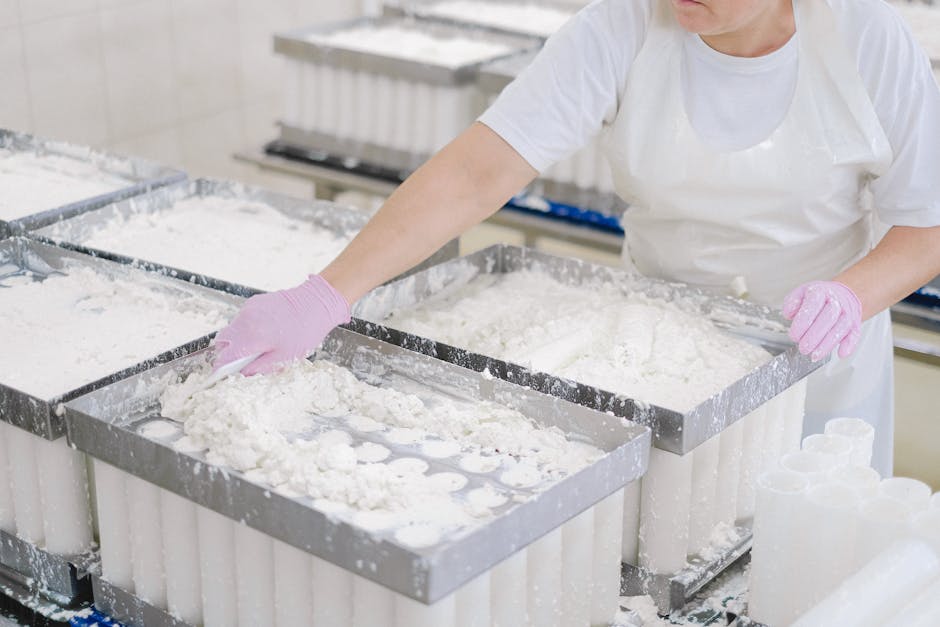Some experiences in the kitchen raise questions that seem complex but are actually simple. Can You Freeze Evaporated Milk?, is one among them. The answer is yes, you can—but there’s more to it than that. This article explores the tips and facts that are essential to understand evaporated milk, how to freeze it, use it after thawing and alternatives to freezing, as well as the effects of freezing on the nutritional content.
Understanding Evaporated Milk
Evaporated milk, despite its rich and creamy texture, is no mystery ingredient. It is simply fresh cow’s milk minus about 60% of its water content, hence the name evaporated. This process thickens the milk and gives it a slightly caramelized flavor, making it fantastic for adding depth to both sweet and savory dishes. But does its special consistency affect its freezability?
Tips:
- Evaporated milk differs from sweetened condensed milk in that the latter contains added sugar.
- It is also distinct from fresh milk, predominantly because of its unique taste and consistency.
Fact:
The water content plays a major role in determining the success of freezing evaporated milk. The less water, the more smoothly the substance freezes and thaws.
Freezing Evaporated Milk: Can it Be Done?
Evaporated milk can indeed be frozen—in fact, doing so may allow you to cut down on kitchen waste. However, like any other substance, there are specific steps to follow for its freezing to yield a desirable result.
Best practices:
- Ensure to freeze the evaporated milk as soon as possible, no more than five days after opening.
- Use appropriate containers—freezer bags or airtight containers work best.
Pros and Cons:
On one hand, freezing evaporated milk can prevent waste and come in handy when you have a recipe that calls for less than a full can. However, the thawed milk may occasionally separate or contain ice crystals, potentially altering the texture.
Defrosting and Using Thawed Evaporated Milk
Defrosting frozen evaporated milk requires patience. To maintain the texture and taste of the product once thawed, you should ideally defrost it in the refrigerator and ensure it’s used within three days.
Best practices:
- Stir the milk well after thawing it to reincorporate any separated components.
- Thawed evaporated milk is perfect for smoothies, baking, soups and sauces.
Comparison:
Fresh evaporated milk has a uniform texture and taste, but frozen and thawed versions might be slightly different, with a grainier texture and less creamy taste. Nonetheless, this change is usually not noticeable in cooked or baked dishes.
Storing Evaporated Milk: Alternatives to Freezing
Apart from freezing, other storage methods can keep your evaporated milk in top shape for your culinary needs. It’s important to note that unopened cans of the product can stay fresh for up to a year at room temperature.
Checklist:
Here’s a step-by-step guide on how to store evaporated milk:
- If unopened, store in a pantry or cupboard away from extreme temperatures.
- Once opened, transfer the milk into a clean airtight container.
- Store opened milk in the refrigerator and use it within five days.
- For extended storage, consider freezing the evaporated milk following the guidelines previously discussed.
Pro tip:
To prolong the shelf life of opened evaporated milk, be diligent in refrigerating it as soon as possible. Keep it tightly sealed in a container to prevent it from absorbing other odors from the fridge.
Does Freezing Impact the Nutritional Content of Evaporated Milk?
Freezing does not have a significant impact on the nutritional content of evaporated milk. Research shows that essential nutrients like calcium, protein, and vitamins remain practically unaffected during the freezing and thawing process.
Fact:
Changes in temperature do not significantly deteriorate the quality of most nutrients in milk. However, exposure to light can degrade certain vitamins, especially riboflavin.
Best Practice:
For preserving its nutritional integrity, handle your evaporated milk with care. Keep it away from light sources and avoid unnecessary temperature fluctuations by organizing your fridge or freezer well to prevent frequent opening.
Freezing evaporated milk is not just possible, but it can also be a handy technique for minimizing food waste and making sure you always have this flexible ingredient on hand. While frozen and thawed evaporated milk may not match fresh in texture and taste, it’s nearly indistinguishable in cooked dishes. So, next time you find yourself with leftover evaporated milk, consider popping it in the freezer. It could very well be your secret weapon for your future culinary ventures.
Key Takeaway:
- Evaporated milk, which is essentially fresh cow’s milk reduced by about 60% of its water content, can be successfully frozen and used in various recipes. The water content of the milk plays a critical role in the freezing process.
- For best results, evaporated milk should be frozen as soon as possible, preferably within five days of opening, using suitable containers like freezer bags or airtight containers.
- Freezing does not significantly impact the nutritional content of evaporated milk. The substantial nutrients like calcium, protein, and vitamins remain virtually intact during the freezing and thawing process.
- Thawed evaporated milk may have a slightly varied texture and taste in comparison to fresh evaporated milk; however, these changes are usually not noticeable in cooked or baked dishes.
Even though freezing may alter the texture and taste of evaporated milk slightly, its usability and nutritional content is maintained. Be sure to adhere to the best practices while freezing and thawing to get the most out of your evaporated milk. Remember, proper handling and storage is key in retaining its quality.
FAQs
Q: Does freezing evaporated milk affect its taste?
A: Frozen and thawed evaporated milk may have a slightly different taste compared to fresh evaporated milk, but this is usually not noticeable in cooking or baking.
Q: Can you freeze evaporated milk more than once?
A: No, it is not recommended to re-freeze evaporated milk as this can lead to further changes in texture and may also pose a risk for bacterial growth.
Q: How long does evaporated milk last in the freezer?
A: If stored properly, evaporated milk can last up to three months in the freezer.
Q: How can I prevent the milk from absorbing the odors of other food in the fridge?
A: Storing the milk in an airtight container or wrapping the container in plastic wrap can help prevent it from taking on the odors of other food items in the fridge.
Q: Are there any specific dishes that would be better with freshly opened evaporated milk than thawed evaporated milk?
A: Fresh evaporated milk is typically preferred for raw applications, such as in coffee or tea, as the texture and taste is more uniform. However, in cooked or baked dishes, the difference between fresh and thawed evaporated milk is usually not noticeable.
Remember to share this article with others who might find this information beneficial and do explore the other informative and interesting posts on our website.






